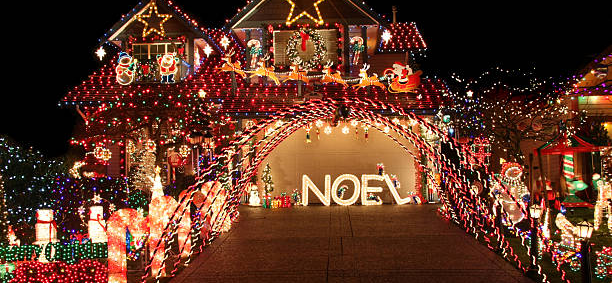Are Home Theatre Power Managers Worth It?
A home theatre power manager ensures that your home theater setup is protected against power surges.
That is not all you get. There are many benefits attached to having a good power manager for your home theater. You can get expert reviews and opinions concerning this and more from reviews platforms like ReviewsBird.
If you have invested a lot of money into setting up a home theater, protecting it from hazards like lightning, power fluctuations, and surges, isn't out of place.
Also, there are many types of home theatre power managers. Knowing the right and efficient one for your home theater is essential. Ensure you read online store reviews of such equipment before making any purchase.
Now, we will look at what power managers are all about, why you need them, and other associated tips.
Home theatre power manager: What does it mean?
A home theatre power manager, also known as a home theater power conditioner, is a complex equipment used to control power supply, therefore providing your home theater with the needed protection against electrical power anomalies.
Home theatre power centers are of different types and sophistication. A very efficient home theater will undoubtedly cost you more and may come with other valuable features such as voltage regulation and system power ON/OFF. Thus, having a good home theatre power manager should be a priority whether you own a multi-channel home theatre or singular.
What Exactly Does a Power Manager Do?
A power manager for your home theater plays a couple of roles. However, this can be distinctly grouped into two. One of the things a power manager associated with your home theater should do is performance enhancement. The power manager achieves this by augmenting the electricity supplied, aiding in the accurate distribution of the power supply, and improving the sound system. Audio advice experiences have shown that power managers improve the sound by removing noise caused by dirty power.
Secondly, a theater power manager should give the system ample protection against electrical power irregularities such as power surges, impromptu power outages, and restoration. When a home theater is afforded enough protection, the entire equipment will last longer than if they were left unprotected. Thus, finding the best power manager to provide you with such protection is significant. 4seating reviews can point you toward the right power manager for your home theater.
Also, home theatre power managers help in the area of organization. The cables that come from your home theater equipment are all connected to your power manager; thus, creating a tidy home theater power center that adds to the appeal of the environment.
Why is a home theatre power manager Necessary?
The main reason you need a home theatre power manager is protection. You can't spend a whole lot of fortune on recreating the cinematic experience at home and then allow irregular power supply to wreak havoc on your expensive equipment.
However, given that we live in an era of technological improvements and innovations, the electricity supply quality has grown ten folds. Many may feel it is not necessary to have good home theater power management or any at all. This is quite a valid point, but one can never be too sure that electricity supply cannot go wrong once in a while.
Also, if your location often sees lightning strikes, having excellent home theater power management is vital if you want your equipment to last long.
Another reason you need a home theatre power manager is increased performance. Dirty power cannot only damage your home theater equipment; it can affect the normal function of your audio system. Dirty power is a result of irregularities in power supply. This can lead to noise coming through your speaker, which reduces sound quality. This unusual noise can also be caused by other equipment if they are connected to the same power stream as your home theater. A good power manager can help to filter this noise to increase the quality of sound for your listening pleasure.
Therefore, having a home theater manager will protect your equipment against power supply hazards and improve sound quality.
Are There Any Disadvantages of Using a home theatre power manager?
There is hardly anything that comes with benefits without any consequences. Some people who want excellent audio quality are against using home theatre power centers. Audiophiles are aware of the many benefits that one can derive from using home theater managers. Aside from the fact that these power managers eliminate mode noise, audiophiles say they tamper with other frequencies that shouldn't be touched, which leads to sound feeling less enjoyable than it should be.
The question on the lips of many is: what alternative is there for those who are sound aficionados?
Using a power regenerator may seem a likely option here to eliminate some sound system problems, but the main trouble is that power regenerators are pretty expensive. Another option will be to fix a separate line providing a distinct channel to connect your audio system. This will reduce the level of interference that other appliances can cause since they no longer share the same power line. But one downside with this option is that your equipment won't get the needed protection against electrical power irregularities it would if it were using a home theatre power management system. You require a surge protector that basically protects your equipment from surges to deal with this.
Power Manager or Surge Protector: Which Should You Go for?
Although power managers share some similarities, the two devices are pretty different. All you can get from a surge protector is protecting your equipment from power surges by using a Metal Oxide Varistor (MOV) and gas discharge arrestors. These constituents allow it to channel extra power away from your home theater devices. But a surge protector can't sever your equipment from the circuit. This puts your equipment at high risk in the occurrence of a significant power surge that the surge protector can't contain.
However, home theatre power managers can serve your equipment's connection if the need arises since they mostly use the Extreme Voltage Shutdown mechanism (EVS). And that is not all: they also improve your whole home theater setup's sound quality and general performance. Therefore, power managers have more benefits than surge protectors.
Conclusion
We have seen that home theatre power managers are essential to protect your equipment from many power hazards and improve performance quality. There are different power managers out there, and you need to ensure you get the one your home theater setup deserves.
























